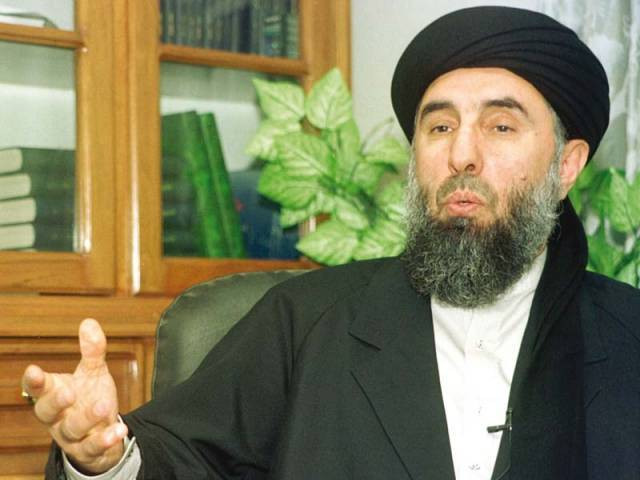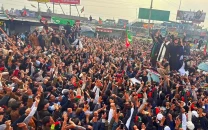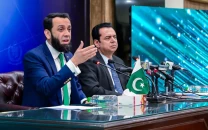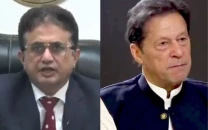Dialogues with Hizb-e-Islami Afghanistan in jeopardy as talks fail with Taliban
Various elements blamed for deadlock in peace process

Various elements blamed for deadlock in peace process. PHOTO: FILE
Hekmatyar blamed some “circles” within the national unity government in Afghanistan and its foreign allies for the breakdown in talks. He said Kabul wanted more than 20 amendments in the approved draft of the proposed peace agreement.
In a statement posted on the online edition of HIA’s mouthpiece Shahadat, he said the government wanted the Hizb to accept the controversial security pact with US. It allows the longer stay of American troops in Afghanistan.
President Ashraf Ghani had struck the Bilateral Security Agreement (BSA) just hours after he assumed office in September 2014. Ghani’s predecessor, Hamid Karzai, had refused to sign the pact on the grounds that the US had not helped him in peace with the Taliban.
The Afghan High Peace Council, which was involved in talks with the HIA over the past four months, played down the “rumours”. It said both are hopeful of the success of the process.
The HPC deputy chief, Abdul Khabeer Uchqoon, says the council had issued a clarification after Hekmatyar sought an explanation about some parts of the finalised draft.
HIA’s quest for discussions on a timeframe to withdraw foreign troops is also seen as an irritant for the talks. Its suggestion that the peace deal should be signed with the Islamic Republic of Afghanistan instead of the government has also been a cause for concern.
Suspension of the intra-Afghan dialogue is disappointing for people in the war-torn country as the process received widespread support. Many had hoped the deal would have a positive impact on the security situation.
After four months: Hizb-Kabul talks collapse
The Kabul-Hizb talks were important after the Taliban publicly refused to take part in the peace process under the Afghanistan, China, Pakistan and the US quartet in March 2016. The stalemate is seen as a victory of the elements averse to the peace process.
Analysts and sections of the media feel elements of the Northern Alliance and Chief Executive Dr Abdullah Abdullah’s camp could also be behind the failure of the talks due to their rivalry with Hizb-e-Islami.
Nazar Mutmaeen, a political analyst, says although the government has not yet officially declared that talks have failed, HIA confirmed the impasse in its official newspaper.
Mutmaeen told The Express Tribune on Friday that Northern Alliance Chief Executive Dr Abdullah Abdullah and the Council for the Protection and Stability of Afghanistan, an anti-government council formed by former Afghan jihadi figures, were against the peace deal.
“I think there are mostly internal elements which have caused the deadlock,” he said from Kabul. “The international community, the US, Pakistan, Turkey and Saudi Arabia were in favour of the process,”
Ahmadullah Ahmadzai, an Afghan political analyst, believes Hekmatyar “showed flexibility” to make the process successful and the ball was in the government’s court to take the process forward.
“I think Kabul is responsible for the failure of the peace negotiations. At the same time those Hizb-e-Islami leaders, who are now part of the government, were also opposing Hekmatyar’s arrival in Kabul as they would then lose their perks and privileges,” Ahmadzai said.
Meanwhile, a section of the media has also shifted the blame on Dr Abdullah’s camp.
Taliban suicide bombers kill 27, wound 40 in attack on Afghan police
The private “Sarkhat” newspaper, which is considered pro-government, said HPC deputy chief Attaur Rahman Salim, who is a member of Dr Abdullah’s team, was seen behind the move to frustrate the signing of the agreement.
“President Ashraf Ghani offered some concessions, including a share in the government, during negotiations with the HIA team. However, Abdullah opposed any kind of power sharing and tried to create hurdles to block the possible peace deal,” the paper said in its analysis this week.
A peace deal with the HIA is important as the group will formally end its insurgency and have the right to take part in presidential, parliamentary, provincial and local elections, according to the 25-point HIA draft.
Although the negotiations are deadlocked, Hekmatyar says he has kept the option open to restart talks if the government drops its preconditions. In an effort to find a way forward, the HIA sent a senior leader from its political committee, Haji Abdul Malik, with a letter for President Ghani this week.
Malik was supposed to deliver the letter to Abdul Qayyum Kochai, uncle of President Ghani, who had been playing the role of a bridge between the president and armed rivals, according to Afghan sources.
The talks could be revived and the peace deal signed if President Ghani and his chief executive show some flexibility on suggestions by the HIA.
Published in The Express Tribune, July 2nd, 2016.



















COMMENTS
Comments are moderated and generally will be posted if they are on-topic and not abusive.
For more information, please see our Comments FAQ